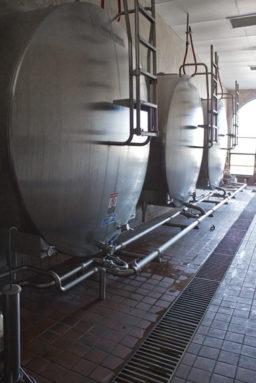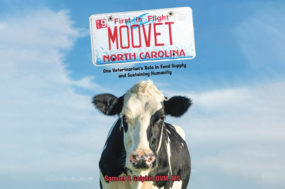California milk production usually takes a dip in the wet, cold months of December through February. That didn’t happen this year – and now dairy producers will have to make amends. Penalties for more than assigned baseline have been levied as processors try to convince dairy producers to cut back. But a rollback in the tide of milk might be tough.
Coming off a warm winter, cows are now going into the season of typically high production. In addition, cow numbers have been climbing since bottoming out in December 2010.
“The warm weather in the winter pushed production up to unseasonably high levels,” said Marie teVelde of California Dairies Inc. “It’s not typical; usually production starts moving up in April and May.
“Penalties will be based on the marketing costs to get rid of the milk; there are no set figures,” she said.
California’s largest milk processor cautioned its members in April that there will be penalties for production over base. This is the first time since May 2009 that penalties for overproduction have been enforced by CDI.
Rob Vandenheuvel of Milk Producers Council said the weather played a major role in the surge of California milk, but lower prices also drove dairies to produce more milk to keep up cash flow.
“In times of economic stress, individuals will step up production, but it’s hard on the industry,” said Vandenheuvel.
Land O’Lakes cooperative reported receiving more than 17 million pounds of milk per day in early March, and volumes have continued to grow.
Land O’Lakes and DFA have also initiated base reduction measures in the face of extremely high milk production. Land O’Lakes members who produce above their newly revised base volume after April 1 will be assessed $10 a hundredweight (cwt).
In addition, all Tulare County and Southern California members will be required to reduce production an additional 6 percent. Incentive for producers is a premium increase of 30 cents per cwt. Land O’Lakes’ volume reduction measure will end June 30.
Land O’Lakes producer and Western United Dairymen board member Tom Barcellos of Porterville said producers who need to reduce their volume are using several different approaches. He has been able to reduce his dairy’s output by feeding lower-quality hay; others are culling cows or using a combination of the two.
Dairy Farmers of America notified producers that shipping past their base will result in penalty of $6 per cwt this month.
Tipton dairyman Joe Macedo, who ships to DFA, said that by July he expects the penalties to be lifted as milk production drops due to the heat. In the meantime, producers are drying cows off earlier, culling or adjusting rations. PD





